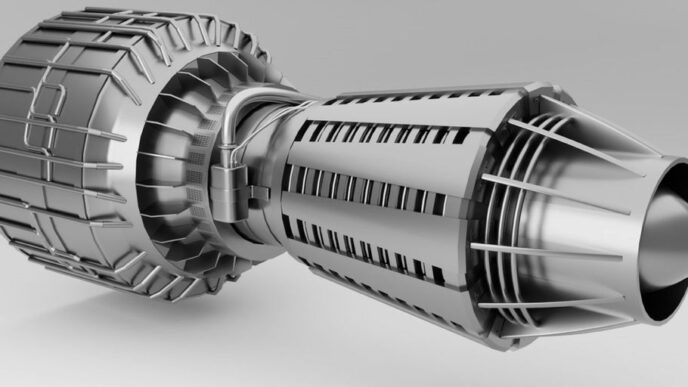The role of unions has long been associated with job security, wage negotiations, and workplace protections. While these remain fundamental to organized labor, new data suggests that Gen Z workers want more than just stability—they want unions to lead the way in modernizing the workplace. According to the 2025 LaborStrong Perceptions and Priorities of Labor survey, the newest generation in the workforce is looking for unions to go beyond traditional concerns and take on issues like work-life balance, AI regulation, and flexible work policies.
These younger workers are entering jobs with different expectations than previous generations. They believe that unionized workplaces provide better benefits, fairer treatment, and a greater sense of security. However, they also see a pressing need for unions to evolve. While past generations may have viewed unions primarily as a safeguard against layoffs and unfair labor practices, Gen Z workers are calling for advocacy that extends into the realities of modern work culture.
Gen Z Sees Unions as a Path to Workplace Innovation, Not Just Protection
Job security remains a key reason why workers have historically turned to unions, but younger employees are expanding that definition. For them, security is not just about keeping a job—it’s about ensuring that the job itself remains sustainable, fulfilling, and adaptable to the changing workforce. The survey found that workers across all age groups still agree that wages, benefits, and safety should be central to union efforts. However, early to mid-career workers are making it clear that unions must broaden their focus to remain relevant.
More than half of all respondents identified AI and automation as a top issue that unions need to address in the next year, ranking just behind wage inequality and livable wages. Among Gen Z and Millennial workers, concerns about AI are even more pronounced. They see automation reshaping industries and want unions to step in to protect job quality, ensure retraining opportunities, and advocate for ethical implementation. Unlike older workers, who may be more skeptical about AI’s impact, younger employees are already anticipating the challenges it will bring and expect unions to take a proactive stance.
Paid leave and work-life balance have also become defining issues for this generation. The survey revealed that younger workers rank these concerns as more important than wage increases or even adherence to health and safety standards. Compared to their parents’ generation, younger workers were more than twice as likely to prioritize work-life balance and more than three times as likely compared to the oldest workers surveyed. This shift in priorities suggests that unions must adjust their advocacy to reflect a workforce that values flexibility, mental health support, and the ability to maintain a sustainable career over the long term.
Beyond Job Security, Gen Z Workers Want Unions to Address Modern Work Challenges
Unions have traditionally been seen as protectors of worker rights, but younger employees want them to be more than just a safeguard—they want them to be a force for progress. The survey found that union workplaces consistently outperform non-union workplaces in areas such as benefits, fairness, and workplace safety. These advantages remain attractive to young workers, but they also expect unions to address challenges that weren’t part of traditional labor negotiations.
Remote and hybrid work policies are another area where younger employees believe unions should be involved. Many workers now expect flexibility in where and how they work, yet workplace policies have been slow to adapt. Younger workers are looking for unions to push for fair remote work standards, ensuring that employees who work from home receive the same opportunities, benefits, and job security as those in traditional office settings.
Another shift in workplace expectations is the demand for paid leave. While older generations may have viewed paid leave as a benefit, younger workers see it as a necessity. The survey found that young employees believe unions should fight for expanded paid leave options, including parental leave, caregiving leave, and mental health days. They want protections that acknowledge the realities of modern life, allowing them to manage both personal and professional responsibilities without fear of losing income or job stability.
These findings underscore a critical moment for unions. While traditional workplace concerns like wages and safety remain important, unions must also embrace new areas of advocacy to meet the expectations of the workforce they represent. Gen Z is not just looking for protection from bad workplace practices—they want unions to help build workplaces that reflect their values and priorities.
Young Workers Expect Unions to Evolve Alongside the Changing Workforce
The trust that younger workers place in unions presents an opportunity but also a challenge. The survey found that union status is a factor for many young job seekers, meaning that union workplaces continue to be seen as desirable. However, Gen Z workers also believe that unions cannot remain stagnant. They expect labor organizations to lead conversations on AI, work-life balance, and the future of employment.
Trust in unions to represent workers effectively peaks for employees in their 30s and 40s, but the expectations of younger workers will shape the next evolution of organized labor. If unions do not take an active role in advocating for modern workplace concerns, they risk losing relevance to a generation that is increasingly demanding change.
The findings from the LaborStrong survey suggest that the role of unions is expanding. While older workers may still see unions as a means of protecting what they already have, younger employees view them as a way to push for something better. Their vision of the future includes AI policies that prevent job displacement, flexible work arrangements that support productivity without burnout and paid leave policies that acknowledge the realities of balancing work and life.
As unions look ahead, they face a critical decision—continue focusing solely on traditional labor issues or embrace the modern challenges that younger workers are asking them to address. The data makes it clear that those who choose the latter path will be the ones shaping the future of the workforce. Gen Z is looking for unions that don’t just protect workers but advocate for workplaces where employees can thrive. If unions rise to meet these expectations, they will not only maintain their influence but expand it for generations to come.














